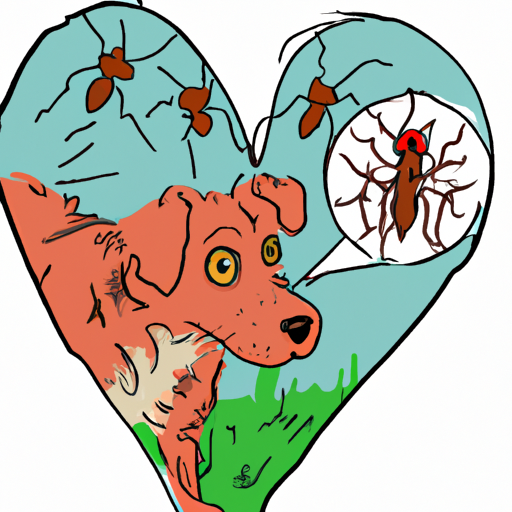“`markdown
How Dogs Get Heartworm
Understanding Heartworm Disease
You might think of heartworms as a far-off threat that doesn’t affect you or your furry friend. However, if you’re a caregiver for a dog, you need to know that heartworms are a serious and potentially deadly disease that can affect dogs in all 50 states.
Heartworms are parasitic worms that can live in the heart, lungs, and blood vessels of affected animals. They are transmitted by mosquitoes, which means that even indoor dogs are at risk. The disease is not only hard to detect in its early stages, but it’s also difficult and costly to treat. Prevention is the key to keeping your pet safe.
The Lifecycle of a Heartworm
Understanding the lifecycle of a heartworm can help you better grasp the threat it poses to your pet. Here’s a concise breakdown:
- A mosquito bites an infected animal and picks up microscopic baby worms (microfilariae).
- Inside the mosquito, these microfilariae mature into larvae.
- The mosquito bites another animal, depositing the larvae onto its skin.
- The larvae enter the new host through the mosquito bite wound, where they continue to mature and eventually migrate to the heart and lungs.
Heartworm Prevention Techniques
Preventing heartworms is far less expensive and dangerous than treating an infected dog. Here are some steps you can take:
- Regularly administer preventative medication: Most heartworm preventatives are given monthly and come in the form of a chewable tablet.
- Visit your vet for annual heartworm tests: These tests can detect heartworm infection before symptoms appear, making treatment more effective.
- Keep your pet indoors during peak mosquito times: While indoor pets can still get heartworms, reducing exposure to mosquitoes can lower the risk.
| Action | Benefit |
|---|---|
| Regular medication | Prevents infection |
| Annual tests | Early detection |
| Limiting exposure | Reduced risk |
Recognizing the Symptoms of Heartworm Disease
As a caregiver, you can keep an eye out for symptoms in your dog, which may include:
- A mild, persistent cough
- Fatigue after moderate activity
- Decreased appetite and weight loss
- Swelling in the dog’s belly due to excess fluid
Early detection can be a matter of life and death for your dog.
Treatment of Heartworm Disease
If your dog is diagnosed with heartworms, treatment can be a long and difficult process, potentially involving:
- Stabilizing the dog’s condition
- Administering a series of injections to kill adult heartworms
- Restricting the dog’s physical activity
Remember, prevention is always the best approach to this deadly disease.
Frequently Asked Questions
Q: Can humans get heartworms from their dogs?
A: No, heartworms are species-specific and cannot be transmitted directly from dogs to humans.
Q: Can my dog get heartworms during the winter?
A: Yes, mosquitoes can still bite in winter, especially in warmer regions.
Q: How often should my dog be tested for heartworms?
A: Annual testing is typically sufficient, but your vet may recommend more frequent testing based on your dog’s risk factors.
Remember, you’re not just a pet owner – you’re a caregiver. Understanding how dogs get heartworms is the first step towards ensuring a long, healthy life for your furry friend.
“`



